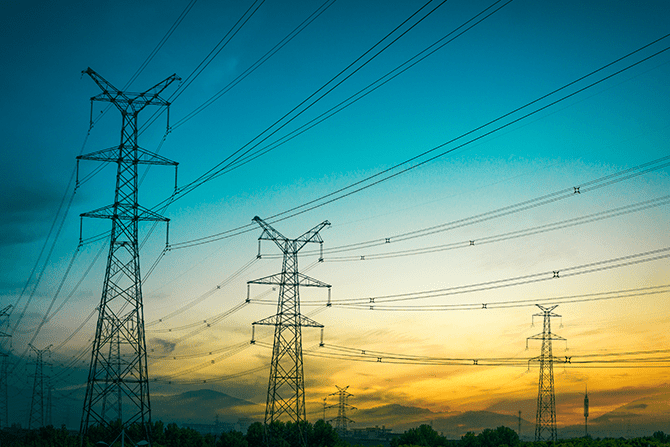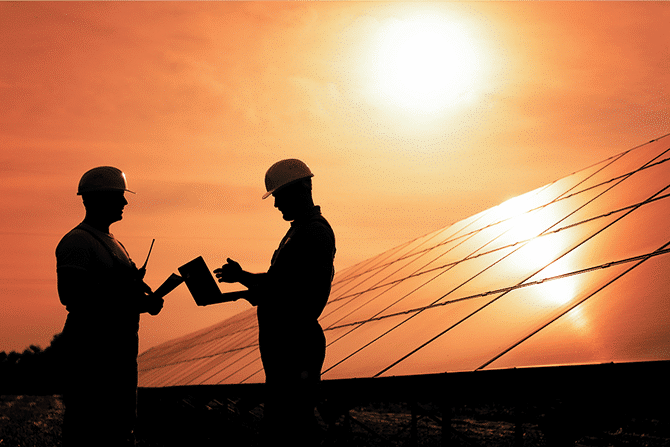How E-REDES is reaching diverse audiences with its energy data portal

The wider that data is shared, the greater the value it generates. This is particularly true of energy data - our blog explains how Portuguese utility E-REDES is extending data sharing and providing a tailored experience through its intuitive data portal.
Driving decarbonization and achieving the energy transition relies on effective data sharing between all players within the ecosystem. Often this means utilities need to build stronger relationships with a wider range of different stakeholders, sharing data effectively to meet their specific needs.
For utilities such as network operators, data portals are key to sharing with all of these groups. They enable organizations to provide a tailored experience, delivering the right data in ways that are easily understandable and usable at both a strategic and tactical level.
E-REDES - Delivering a tailored data portal experience
The innovative approach of E-REDES, Portugal’s energy distribution network operator provides the perfect example of how data portals can democratize access to data assets for a wide range of groups. Launched in 2022, its open data portal allows free and open access to data on renewable production, electricity consumption, electric mobility, network availability, and network connection requests.
The bilingual data portal, available in English and Portuguese, enables users to customize their navigation based on specific profiles (such as developer, academic, energy producer or municipality) or by dataset themes (Consumption and Energy, Electric Mobility, Electrical Network, Operation and Quality of Service or Renewables). This provides a focused view into E-REDES 19 datasets to help users quickly explore relevant data that meets their requirements.
E-REDES is now building on this, and has created tailored projects to involve research students and municipalities in energy data sharing to accelerate the energy transition.
The Open Data Academy Challenge
To unlock innovation, E-REDES has created the Open Data Academy Challenge Award. This aims to reward dissertations and master’s projects that focus on the theme of the energy transition and that use data from its open data portal as a source for research. It encourages students to submit projects based on analysis of portal data from any stage of the value chain – production, distribution, or consumption.
The projects can cover any of the main CO2-emitting areas: the electrical system, transport, industry, or buildings, enabling researchers to carry out analysis across a range of disciplines, including economic, social, technological, political, behavioral, spatial planning and environmental.
By promoting open data within the scientific and technological system, E-REDES is looking to maximize the potential of the information provided by the open data portal and encourage solutions that transform data from the electricity grid into value for society.
To increase interest in the challenge, E-REDES is supporting the initiative with a series of information sessions at universities from the north to the south of the country. This roadshow includes visits to the Nova School of Business and Economics, the University of Coimbra, Nova School of Science and Technology, University of Porto and the University of Beira Interior.
Entrants will need to submit a brief summary of their thesis, a video pitch and official confirmation that it is part of a dissertation/master’s project. They will then be evaluated by a technical committee with the resulting shortlist then passed to a specially-created jury for final judging, based on criteria such as the relevance of the open data used, the contribution of the thesis to the energy transition, and the author’s ability to communicate their findings.
The three best projects will receive monetary prizes worth €6,000, €4,000 and €2,000 respectively. Applications open on January 8, 2024 with a final closing data of October 31, 2024.
The Municipality data dashboard
Achieving the energy transition relies on everyone taking action. Consequently, E-REDES provides comprehensive data around a range of energy metrics for every one of Portugal’s 278 mainland municipalities. Launched at the XXVI Congress of the National Association of Portuguese Municipalities (ANMP) in October 2023, its drill-down municipality dashboard enables municipal staff and citizens to find their location by searching by name or via a clickable map and then access local metrics on areas such as:
- Monthly electricity consumption
- % split of consumption between domestic/non-domestic usage
- % of customers with a smart meter, with a comparison to the national average
- % of public lighting that is LED
- Number of network connections in the municipality
- Number of self-consumption units by municipality and total installed power
- Number of public EV charging points and total power available
- Planned and actual energy interruptions

All data can be drilled down to show how it has changed over time through data visualizations and dashboards, to make it as easy as possible to read and understand. Information can be compared to national and regional averages, with the ability to click through to a more detailed, parish-by-parish view.
This means mayors and their staff can see how they compare to their peers and the national average, such as around the percentage of installed smart meters and number of connection points for EV charging stations in their municipality. This enables them to highlight areas to focus on to drive the energy transition, based on comprehensive, up-to-date information to drive more effective decision-making.

The same information can be used by citizens to make more sustainable choices when it comes to energy consumption, as well as to hold their local municipality and E-REDES to account through a transparent view of progress towards the energy transition.

Further dashboards enable users to drill down further into specific areas. For example, one focuses on growth in installations of renewable power by consumers, highlighting which municipalities are seeing the fastest increases. This provides municipal authorities with information on their relative performance and enables them to collaborate and share best practice to increase overall installation numbers.

All data on the E-REDES portal can be accessed automatically via API. That makes it easy to incorporate data into other applications, spreading its usage and increasing value. For example, the city council in Porto integrates information from the portal around planned or unexpected power cuts into its Porto Card platform for citizens, and sends an automatic SMS to those in affected zip codes.
Successfully achieving the energy transition relies on sharing data as widely as possible between all stakeholders, and creating a dynamic community around energy data. Given the variety of groups involved, their different requirements and levels of data skills, an intuitive, easy-to-use data portal is vital to effective open data sharing. As E-REDES’ experience shows it needs to be tailored to the needs of each audience, providing understandable, actionable insights and experiences that they can use to drive change and build a decarbonized world.
Involved in European energy data? Don’t miss the Energy Data Summit Europe on December 6 in Brussels. Join your peers from across the European energy sector to gain expert insights, shape your strategy and network with industry leaders, including Jose Ferrari Careto, CEO of E-REDES.




